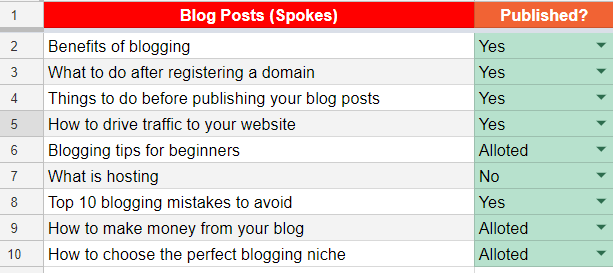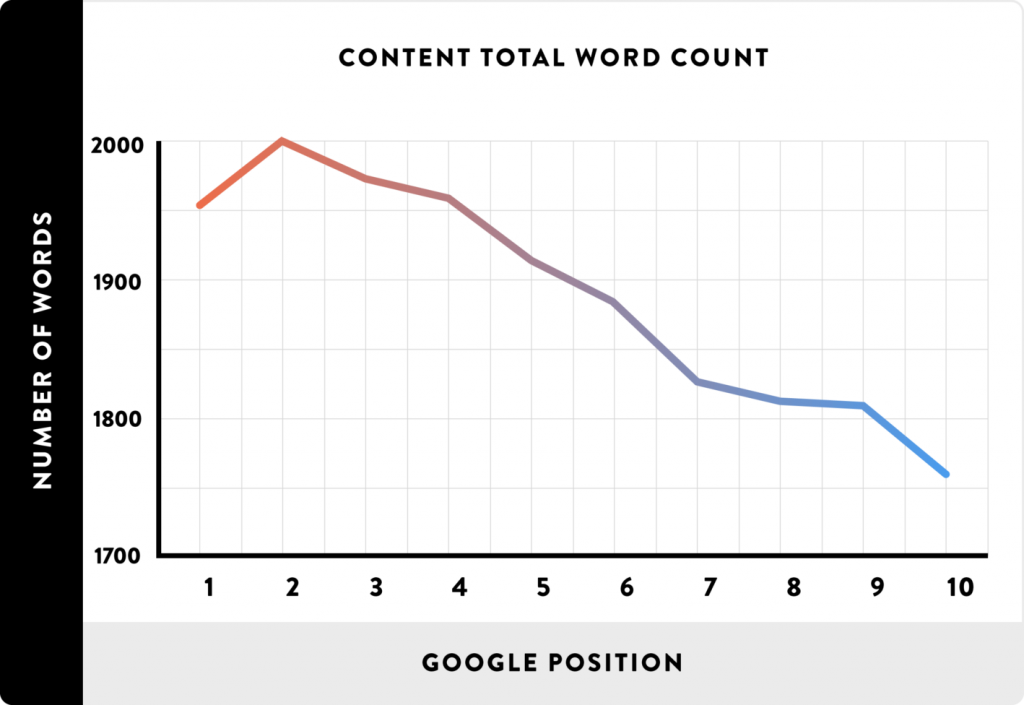Who else wants to bring more visitors from search engines following these top 7 SEO strategies?
Search engine traffic is the gasoline of content marketing.
Search traffic can literally make or break your blogging success. That being said, with millions of blog posts going live every single day, it’s getting harder to get into top search results.
If you’re struggling to boost your website rankings in search, I’ve 7 PROVEN SEO strategies for you which you’re going to discover in this post.
Take a look at this SEO for newbie post
So let’s get started without further ado.
Top 7 SEO Strategies to Boost Your Search Rankings In 2019
#1. Create your content strategically
Recommended: Top 10 SEO tips to skyrocket your Google rankings
Content is still the king. It doesn’t matter what niche you are in, it’s your content which sets you apart from your competitors. So if you want to boost your search rankings, make sure to create content strategically.
Here’s how you can do it even if you’re just getting started.
Long form of content works great
Hands down, long articles perform really well in search engines. It doesn’t matter what industry you are in, if you’re looking to boost your rankings in 2019, start creating in-depth content.
Brian Dean from Backlinko recently analyzed over 1 million Google search results and found that the average word count of a Google first page result is 1,890 words.
As you can see from the above illustration done by Brian Dean, the total word count of average top 10 search results is around 2000 words.
You now know what to do if you’re struggling with more search traffic. Create long form articles which contain 2000+ words, that said, here are few quick tips to create in-depth articles.
- Forget about the content length and word count when you begin writing. Instead, spend more time on researching your blog topics. Make sure to analyse top 10 search results for the topic you want to cover and find out how you can fill the gaps with your content.
- Try to create 10x better content than your competitors. If your competitors are doing videos, you do long form of articles. If they are doing articles, you consider podcasts but make sure to do 10 times better than your competitors to win at SEO game.
- Write 1000 words every single day. Writing is a skill and it gets better with practice. So the more you write the faster you can hone your writing skills and it ultimately makes it easier for you to create in-depth content.
Another aspect is authoritative content.
According to the 2018 Buzzsumo content trends report, 70% of all content published never gained a single backlink.
The reason?
Lack of authoritative content that eventually fails to create trust for someone to link to your site or even read your content for that matter.
That’s what you need to make changes in your content strategy.
Writing authoritative content is one of the top SEO trends for this year that you need to focus on.
#2. Write magnetic titles and meta descriptions
Once you’ve good content, another tiny thing that is in your hand is to optimize it for getting clicks on Google.
Yes! You can always do your bit (without waiting for backlinks and other third-party SEO factors) by optimizing how your site looks and if it is worth click-inviting.
“On average, 5x as many people read the headline as read the body copy. When you’ve written your headline, you’ve spent eighty cents out of your dollar.” – David Ogilvy
The best way to increase your search rankings is to “get more clicks” from search.
Increasing the CTR (click through rate) is the best indicator for Google to move up your search rankings.
Let’s consider a scenario. If a 5th result from search is gets 100 clicks and 2nd result gets 50 clicks, which one do you think gets better search rankings in the long run?
If you said the 5th result (which gets 100 clicks), you’re right. Google analyses the CTR of search results and move up the pages that gets more clicks at an average.
So the fastest way to boost your search rankings in 2019 is to write compelling titles and meta description for every blog post and page you create.
That being said, here are few most powerful tips to write catchy titles and meta description that increase your SERP rankings in Google.
- Write your meta descriptions by including questions as they tend to generate more clicks. For example, if you’re writing a post around “best fitness apps”, you can consider including a meta description which reads “Looking for the best fitness apps that help you stay in shape?” and continue writing within the meta description limit of under 140 to 160 characters.
- Use tools like Portent title maker to come up with dozens of compelling headline ideas for your future blog posts. You can also use headline analyzer tools like such as Coschedule’s headline analyzer to analyse how great your headlines are and you can make changes accordingly.
- Keep an eye on the top 10 search results for the topics you are going to cover and analyse what type of headlines and meta descriptions they are using. Just by analysing the top 10 search results, you’ll get amazing ideas. Just make sure to focus on creating completely unique headlines and meta descriptions for your blog posts.
#3. Create topical relevance
Apart from creating unique content, you should try to create your authority around your core topics. Meaning, you should try to show Google (and users) that you’re an expert on a particular topic (or more) by creating content around most keywords/queries that come under the same umbrella.
Why?
These days SEO is shifting from mere keywords based SEO to a topic based SEO. You need to be targeting topics (like I said above) instead of singular keywords.
That’s why Google will prefer ranking your site for a query you’re topically authoritative at rather than displaying a site that has 1 or 2 articles on that topic.
For example,
I’ve created a very powerful hub & spoke model that targets the topic of “how to start a blog” in the hub part of the model. That post is a perfect example of how I’ve structured the internal links to spoke pages from the hub page naturally.
Now this is a pretty tough keyword to rank individually but when you talk about the wholesome journey of starting a blog including keywords like best blogging platform, blog post ideas, what is hosting, how to choose a domain name, benefits of blogging etc (in the spoke part of the hub & spoke model).
Here is the overview of my content vault for the above silo (please note: I have never shared my content vault in the open before, but since this is one of my most favorite blogs, I did not think twice).

This has already started showing results and I hope it gets more results as and when I add new content to it.
Tips to create topical relevance for your blog:
- Use a broad term (don’t bother about keyword difficulty) for your main pillar page’s content. The term should be broad enough to cover almost all individual keywords under that topic. In my example above, the broad topic is “how to start a blog” and yes it has pretty tough competition. You cannot even think about ranking that keyword individually. But that’s where it makes a decent pillar content topic.
- For the sub-topics, you can use individual keywords that fall within the broad term or on the user’s’ journey to the broad term. In my example, keywords like best blogging platform, benefits of blogging, what is hosting etc are something that almost every beginner blogger will go through (or search) throughout his journey of starting a blog.
- Link from all relevant pages to the parent or pillar content page for the keyword you’re targeting it to rank. Likewise, link all sub-topics or individual keyword articles from that parent page.
#4. Target “question based long tail keywords”
Did you know that you can rank for position ZERO on Google search results? Position zero which is also known as Google featured snippets is one of the best ways to boost your search rankings.
There’s a powerful and PROVEN way to rank for featured snippets which is to target “question based long tail keywords”.
Let me demonstrate it with you using an example.
As you can see from the above illustration, when you search for “what’s the best time to sleep” on Google, it is showing us a featured snippet which is taking us a Quora answer thread.
If you can target such question based long tail keywords, not only your website gets “featured snippets” but you’ll be ranking at position zero. So you don’t have to compete with anyone else even if authority sites are showing up in Google search results.
So how can you find such question based long tail keywords?
One of the most simplest ways to find question based long tail keywords is to use platforms like Quora and sneak into the topics that you’re going to cover on your website.
Quora feed is filled up with so many topics and there are high chances of coming up with user generate questions you can use as long tail keyword ideas to rank your website in search results.
#5. Nichify your target audience
The number one thing I advise to my readers is, to niche down your blog’s range.
You can’t simply start a blog in a broad niche (like fitness, real estate, marketing and so on) and become a success. You really need to nichify your blog so you can target specific group of people.
For example, if you’re thinking about launching a blog in the “marketing” industry, you can nichify it by talking about any of the below topics.
You can even further nichify down your topics to improve your chance of becoming an expert in your niche by using topics like;
- Affiliate marketing for real estate
- Content marketing for lawyers
- Social media marketing for ecommerce
- And so on
Are you getting it?
By nichifying your blog topics, you can become an expert even if you’re just starting out.
Guess what? People listen to experts, not newbies.
#6. Backlinks are the currency of web
Moz did an interesting case study around the importance of having external backlinks (which you can read from here) and found out that, out of the top 50 search results, 99.2% of all websites had at least one external link.
So what did you learn from it?
If you really want to get into top search results, you must need to find ways to acquire links from other blogs. It’d be really helpful to boost your rankings if the links are highly relevant to your site.
That being said, you can use the following tactics to attract quality links to your site to boost your overall website rankings.
- Broken link building
- Guest posting
- Skyscraper technique
- Blogger outreach
Pro tip: You can also do a competitor backlink analysis to find out the backlink sources of your competitor websites. You can then use any of the above link building strategies to build new links to your site to improve overall website’s authority.
#7. Keep an eye on your keyword rankings
Keyword rank tracking is one of the most underrated SEO strategies by most bloggers. If you’re not tracking your keyword rankings on search engines like Google, how can you even scale up your organic traffic and search rankings?
There are so many tools that help you easily find and analyse your keyword rankings such as;
- SEMrush
- Ahrefs
- Link Assistant and so on
One of the “insider SEO strategies” you can implement with keyword tracking is to also spy on your competitors keyword rankings.
That way you will know all their strengths and weaknesses (by seeing their ups and downs in the keyword rankings on Google) and you can easily analyse what’s working well for them and what’s not.
Depending on your competitors keyword tracking analysis, you can easily make changes to your own blog posts and pages to increase your overall website keyword rankings.
Conclusion about increasing your website rankings on Google
Increasing your search rankings is not a BIG deal if you’ve a strategy. Just remember that, it takes great content to rank well in search engines. If you can satisfy your target audience wants and needs with your content, your website definitely gets better rankings.
Do you’ve any more SEO strategies in mind to boost website rankings in 2019? Share your thoughts in the comments.



Comments are closed.